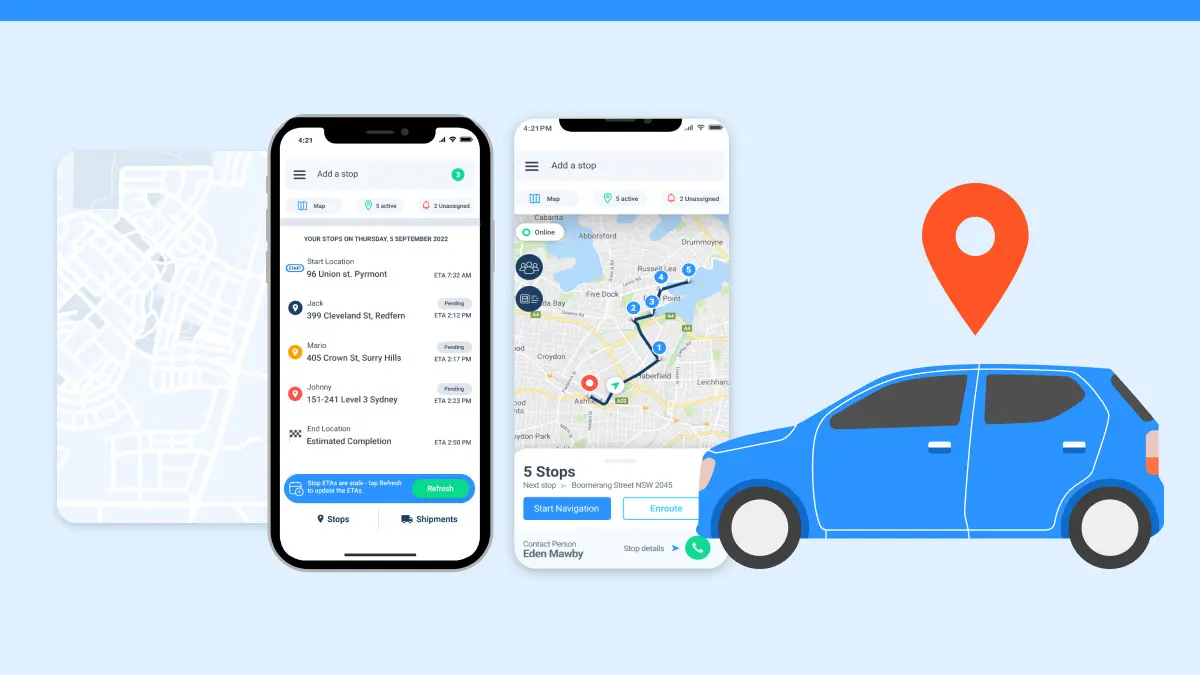Recognizing GPS Tracking: Technology, Applications, and Advantages
Recognizing GPS Tracking: Technology, Applications, and Advantages
Blog Article
Navigating the Future of GPS Monitoring: Technologies, Obstacles, and Opportunities Ahead
As we stand at the crossroads of social implications and technological improvements, the landscape of GPS monitoring is poised for a transformative journey in advance. With great technology comes terrific duty, as information privacy problems impend huge and safety and security obstacles in General practitioner tracking raise significant questions about securing sensitive info.
Development of GPS Innovation
Created for armed forces purposes, General practitioner technology has advanced to become an ubiquitous device in numerous fields, including transport, logistics, agriculture, and individual navigating. Early General practitioner systems were defined by minimal protection, lower precision, and bulkier hardware needs.
One trick turning point in the development of GPS modern technology was the development of Selective Accessibility (SA) in the 1990s, which purposefully degraded the accuracy of noncombatant General practitioner signals. As GPS modern technology continues to evolve, we can expect further improvements in insurance coverage, precision, and effectiveness, opening up brand-new opportunities for innovation and applications throughout different sectors.
Real-Time Monitoring Developments
Structure on the innovations in GPS technology that have actually revolutionized accuracy and protection, real-time monitoring has become an essential area of advancement with profound effects throughout different fields. Real-time monitoring improvements allow organizations and companies to check workers, vehicles, and possessions instantaneously, supplying important understandings for decision-making processes - gps tracking. By leveraging real-time information, firms can enhance functional effectiveness, boost customer care, and make sure the safety and protection of their assets
One of the crucial improvements in real-time monitoring is the assimilation of artificial intelligence and machine understanding formulas, which make it possible for anticipating analytics and anomaly discovery. These capabilities permit aggressive maintenance organizing, route optimization, and danger reduction strategies. In addition, the development of real-time radar has actually led to the development of adjustable dashboards and mobile applications, empowering individuals to accessibility vital details anytime, anywhere.
Information Privacy Concerns

Information privacy concerns include different elements, including the storage space, sharing, and retention of location information. Organizations have to execute robust security steps to secure general practitioner monitoring data from cyber threats and data breaches. Transparent plans relating to information collection methods and the purpose of monitoring are necessary to develop count on with customers and make sure conformity with information defense laws.

Safety And Security Challenges in GPS Monitoring
Addressing information personal privacy issues in GPS monitoring is elaborately linked to mitigating the safety tests that occur from possible vulnerabilities in the innovation. One of the main safety and security challenges in GPS tracking is the danger of unapproved access to delicate location data - gps tracking. Cyberpunks might obstruct general practitioner signals, adjust location info, or perhaps track people without their consent. This not just invades personal privacy yet additionally positions significant security threats.
Another protection difficulty is the potential for jamming or spoofing GPS signals. By interfering or relaying false signals with legitimate ones, destructive actors can trick GPS receivers and adjust area information. This presents risks not only for private customers however also for governmental and army applications that count on exact placing details. Executing robust encryption, authentication steps, and signal verification procedures are crucial actions in addressing these safety difficulties in GPS tracking.
Arising Opportunities in the Market
The growing field of General practitioner tracking technology provides a myriad of encouraging possibilities for industry development and advancement. One key opportunity exists in the development of General practitioner monitoring applications past conventional sectors. General practitioner monitoring can change patient care by making it possible for remote monitoring of essential indicators and ensuring prompt medical support.
One more significant possibility in the GPS monitoring market is the integration of advanced analytics and expert system. By leveraging these technologies, organizations can get useful insights from GPS data to boost functional performance, enhance decision-making procedures, and deal click individualized services to customers. Furthermore, the boosting demand for connected gadgets and IoT remedies offers a ripe possibility for general practitioner monitoring firms to increase their offerings and create ingenious options that accommodate an extra connected world. By taking advantage of these arising opportunities, general practitioner monitoring firms can position themselves for sustained growth and success in the dynamic landscape of the sector.
Conclusion
In final thought, the future of GPS tracking is marked by constant evolution and development in innovation. Real-time tracking developments and emerging opportunities present promising prospects for the sector. Nevertheless, information personal privacy concerns and protection difficulties remain significant obstacles that need to be addressed. As the industry relocates onward, browsing these difficulties will be important to make sure the ongoing development and success of general practitioner monitoring modern technology.
With great innovation comes great duty, as information privacy issues loom huge and security difficulties in GPS tracking raising significant inquiries regarding securing sensitive info.With the rapid spreading of General practitioner tracking technology in numerous industries, addressing data privacy problems has actually ended up being a crucial essential for both businesses and customers alike. The collection of area data with General practitioner tracking increases significant personal privacy concerns, as it enables the surveillance of individuals' habits and motions. Companies making use of General practitioner tracking should prioritize securing this data to stop unauthorized gain access to or misuse that could jeopardize people' privacy rights.
Services need to apply robust safety and security steps to secure General practitioner tracking information from cyber threats and information breaches.
Report this page